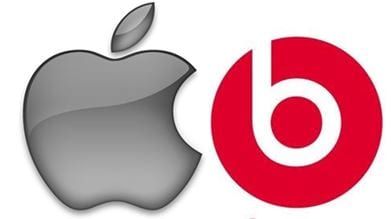The agreement of Apple Inc. (NASDAQ:AAPL) to acquire Beats Electronics, the maker of headphones and musicc streaming services provider for $3 billion received approval from European Commission. The acquisition would be the largest in the history of the tech giant.
Transaction does not raise competition concerns
According to the European Commission, the merger of Apple Inc. (NASDAQ:AAPL) and Beats Electronics does not raise competition concerns citing the reason that combined market share of the two companies is low.
In addition, the European Commission stated that Apple Inc (NASDAQ:AAPL) and Beats Electronics are not close competitors because they selling headphones with different designs and functionality. The commission also emphasized a large number of competitors including Bose Corporation, Sennheiser Electronic Corporation and Sony Corp (ADR) (NYSE:SNE) still remain after the merger.
When it comes to the music streaming service, the European Commission noted that Apple Inc. (NASDAQ:AAPL) and Beats Electronics are both active in the space. The iPhone and iPad maker is currently offering a music downloading service through iTunes while Beats Electronics’ music streaming service is not yet available in the European region.
Currently, Apple Inc. (NASDAQ:AAPL) has competitors in music streaming service such as Spotify and Deezer. The European Commission said the tech giant’s acquisition of a smaller streaming service “would not lead to anticompetitive effects.
Furthermore, the commission concluded that acquiring Beats Electronics does not give Apple Inc. (NASDAQ:AAPL) the ability and incentive to block competing streaming services from accessing iOS for mobile devices.
Bose files lawsuits against Beats over patents
Last week, Bose Corporation filed a lawsuit against Beats Electronics on allegations that the headphone maker soon to be acquired by Apple Inc (NASDAQ:AAPL) violated some of its patents for noise canceling headphones.
Bose Corporation filed its patent infringement case against Beats Electronics in the United States District Court for the District of Delaware and the U.S. International Trade Commission. The company was seeking a court declaration that Beats was willful in violating its patents and compensation for damages. It is also demanding a jury trial for the case.









